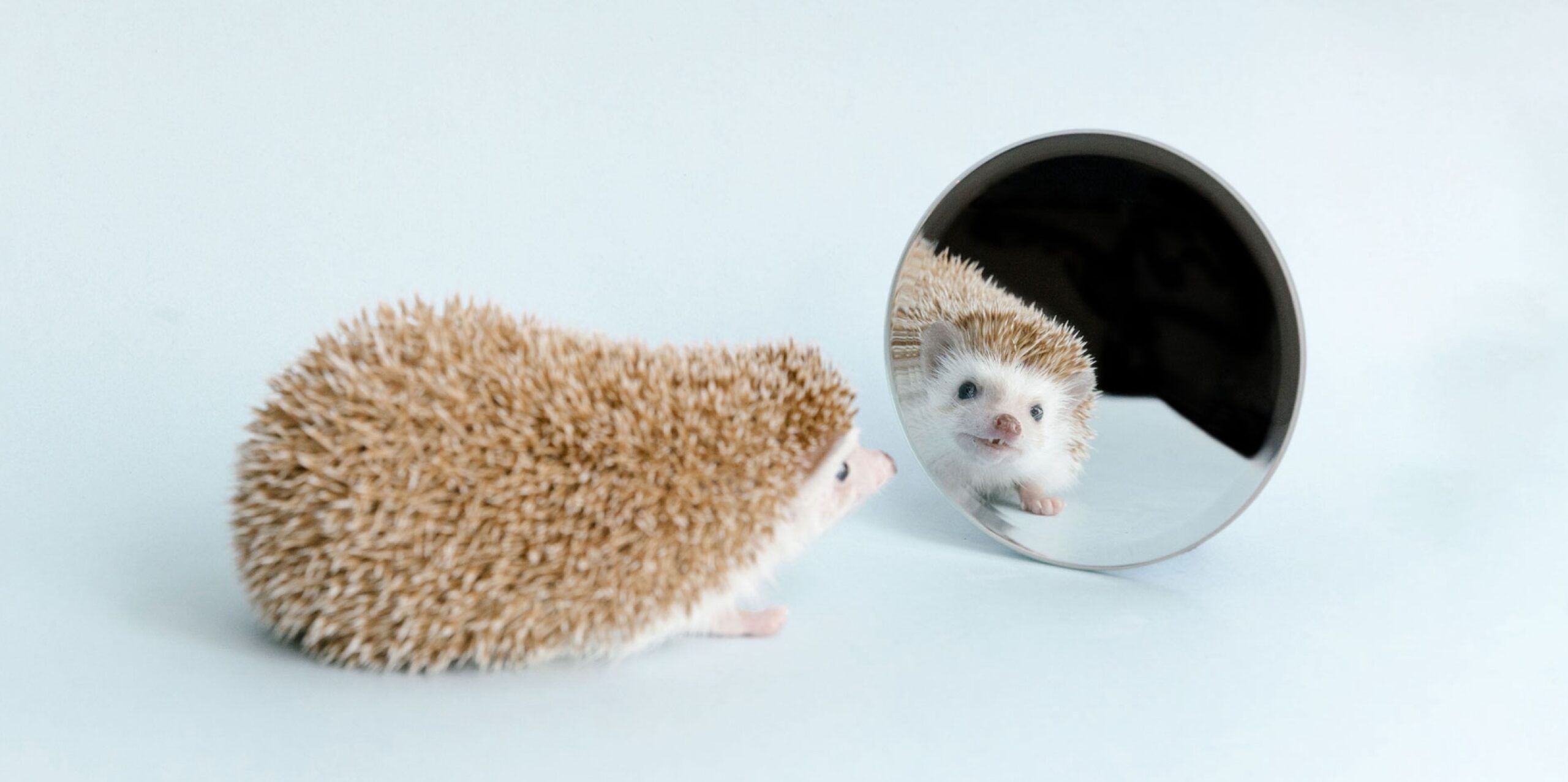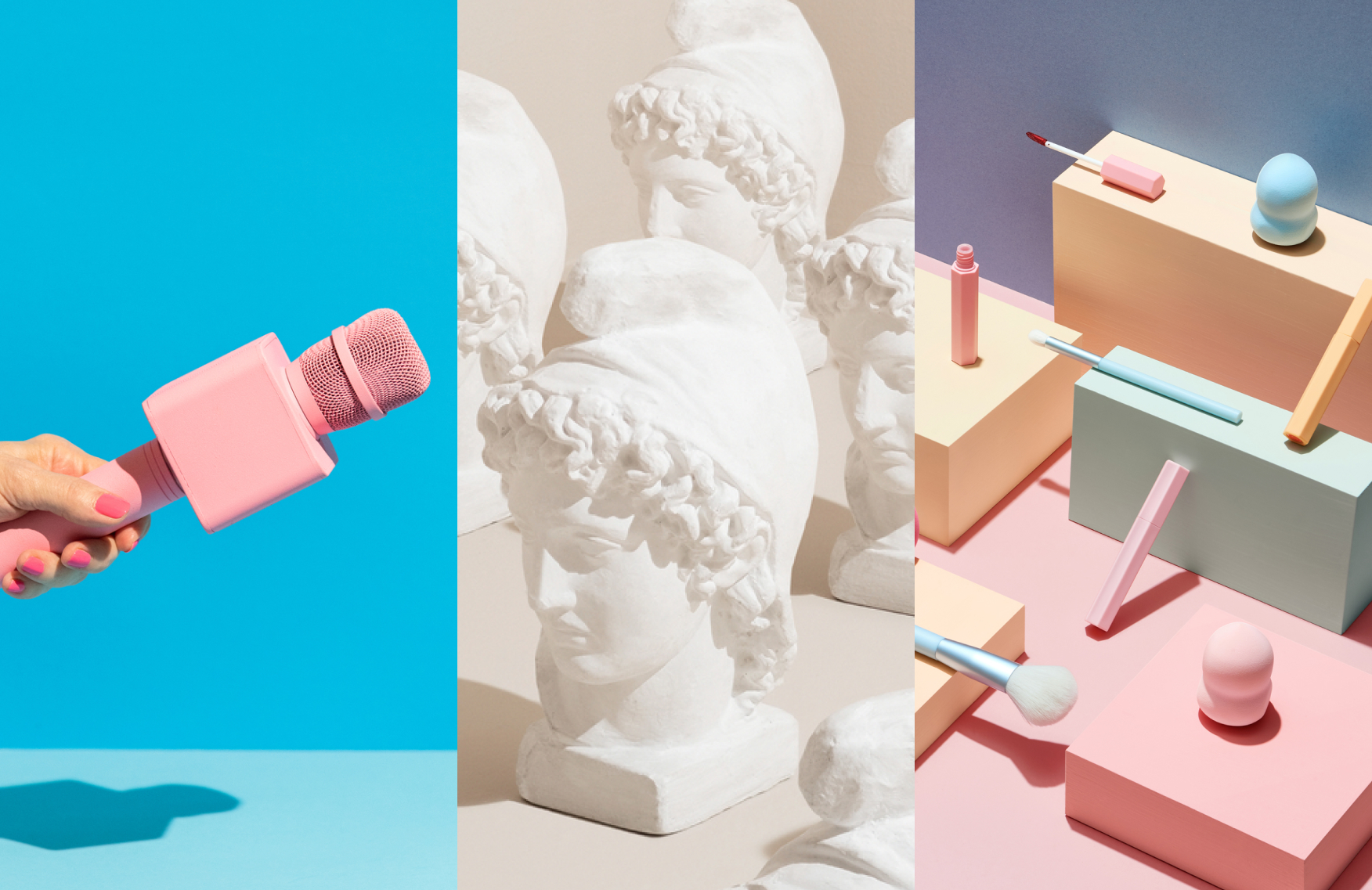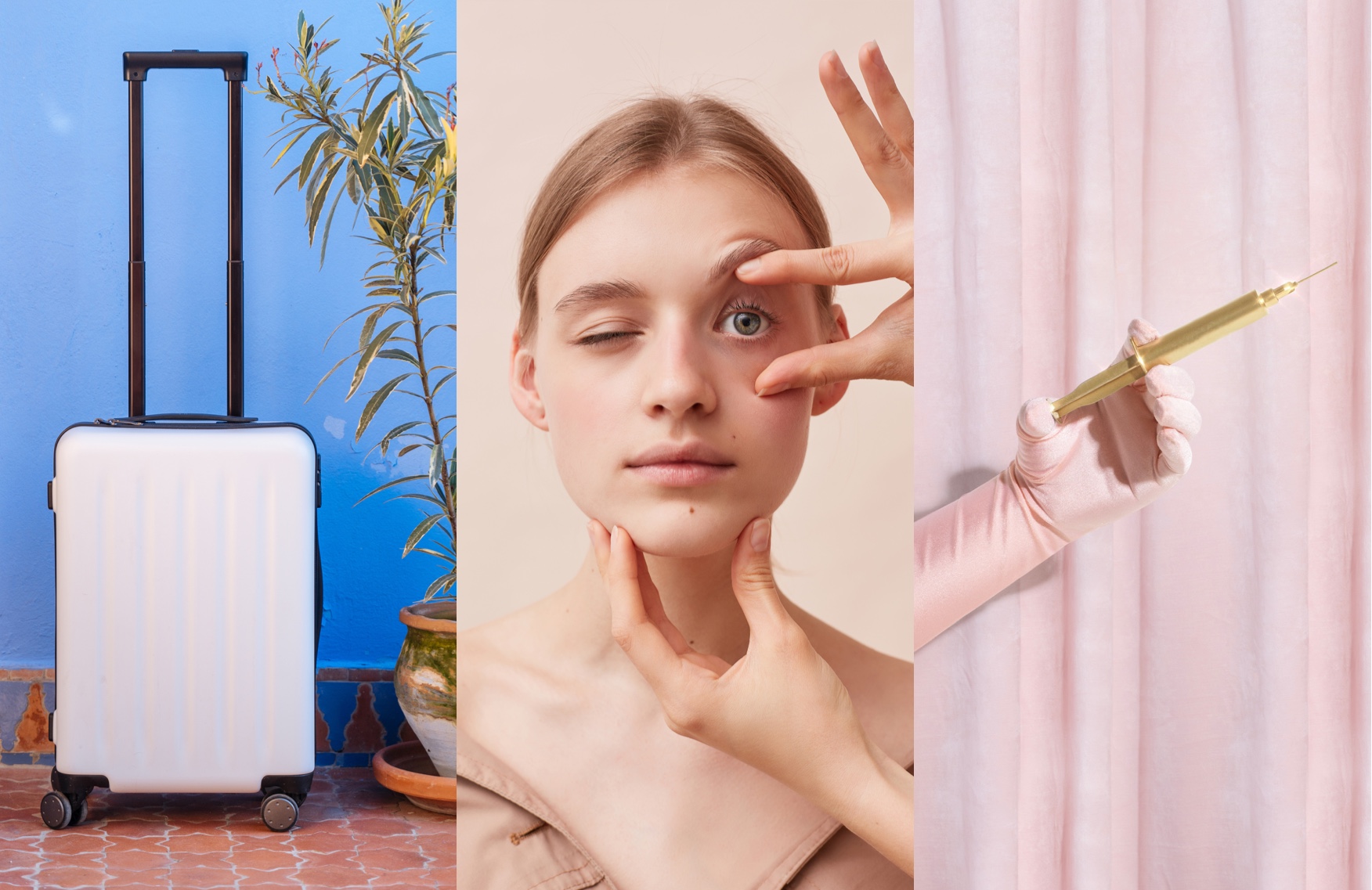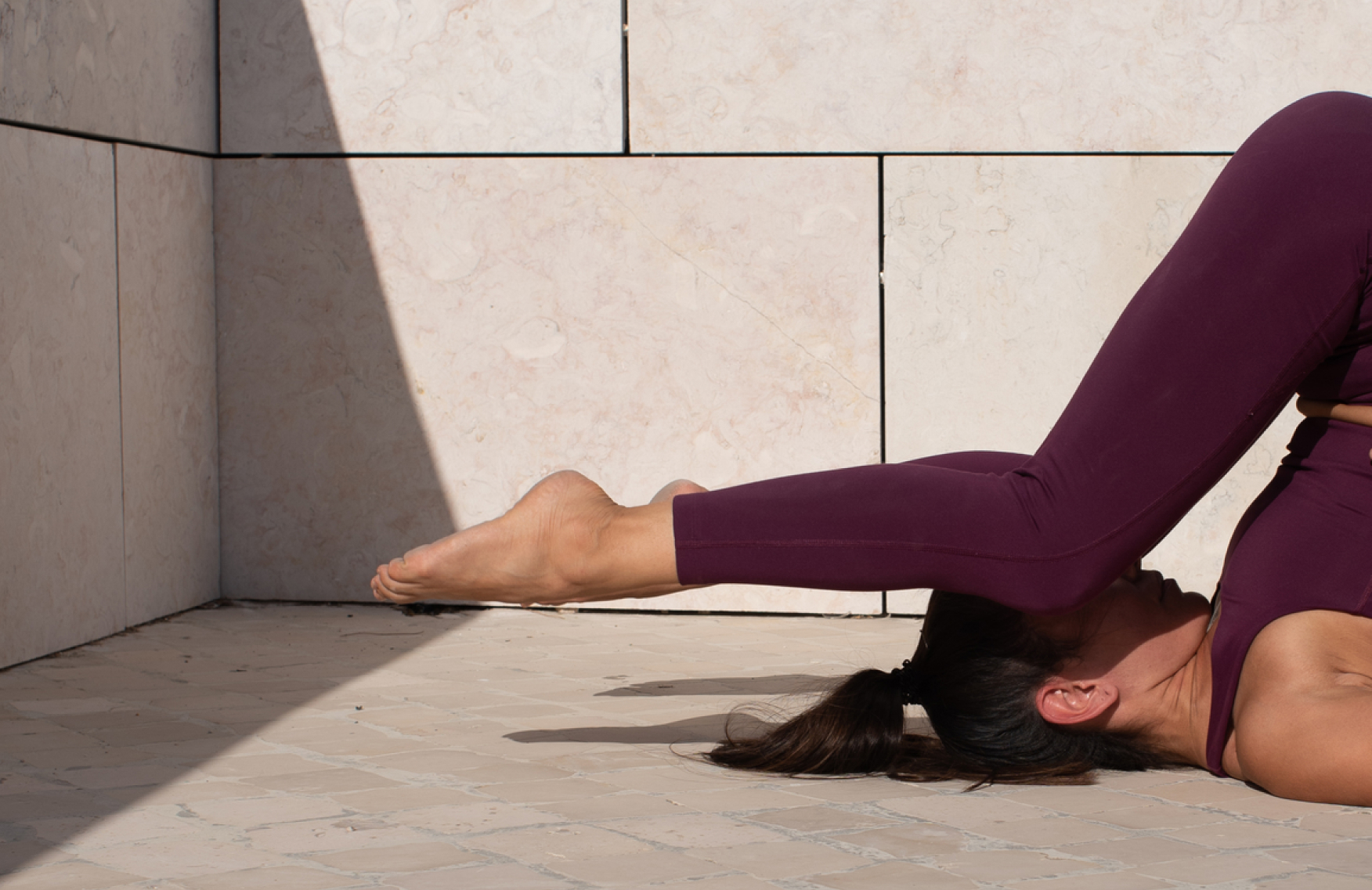Mirror-gazing isn’t vain—and does wonders for stress and mental health, according to this unusual mindfulness practice


Clinically reviewed by: Allison Marks, holistic esthetician
We gaze at our reflections every day—when getting dressed, when applying our skincare routine, when Zooming with coworkers. But how closely do we really look at our own image in the mirror? And would we be more likely to mindfully stare at ourselves if we knew there were stress-relieving, mental health benefits?
Psychologist, research scientist and Barnard College professor Tara Well, Ph. D, believes so, and is working to positively change our relationship with our mirrored selves. “For many people, mirrors evoke strong feelings, mainly because the mirror reflects how critical they are of themselves, be it some aspect of your appearance or something that you don’t like about yourself,” she says. “Instead of avoiding mirrors, I encourage my meditation students to use the mirror to face themselves and work to transform their feelings.”
Self-reflection = self-compassion
After researching the neurological and psychological impact of mirrors, as well as years practicing meditation, Dr. Well developed a mirror-based meditation program that is designed to help people see beyond their surface appearance in order to release self-criticisms, focus their attention and develop a kinder self-awareness.
“First, you develop more awareness of how your critical thoughts are affecting you,” says Dr. Well, who writes about the program’s transformative process in her upcoming book, Mirror Meditation: The Power of Neuroscience and Self-Reflection to Overcome Self-Criticism, Gain Confidence, and See Yourself with Compassion. “Then, you learn to find greater self-acceptance. You also learn to use the mirror to understand and work with specific emotions that you might be avoiding, like anger, fear and anxiety. And third, it becomes easier for you to allow yourself to be seen and to see others in your relationships and daily social activities.”
Recontextualizing your reflection
Scientific research has supported the benefits of mirrors on well-being and how we experience our bodies. The mirror test, developed in the 1970s by psychologist Gordon Gallup, Jr., suggested that mirrors can provide a litmus test for self-awareness, which is the first step in developing a sense of self. Mirrors are also used to understand and treat a wide range of conditions, from managing physical pain and experiencing phantom limbs to overcoming body dysmorphic disorder.
The key, according to Dr. Well, is not only what image you see when peering at a mirror, but how you see it. According to a 2016 study that she authored, looking in the mirror with the intention of being kind to oneself can decrease levels of anxiety and stress—and we know de-stressing can have a multitude of benefits, ranging from better sleep to improved skin health.
How to get gazing
If you’re new to mirror meditation, Dr. Well suggests starting simply with getting comfortable being in the presence of your reflection. Sit in front of a mirror for 5 to 10 minutes with no goal other than to enjoy quality time with yourself. “Imagine you are visiting with a friend—have a cup of tea and just sit with yourself,” she says. “Let go of any plans for self-improvement and just hang with yourself a few minutes every day.”
Tried it and loved it? Dr. Well offers a free seven-day meditation challenge if you’d like to continue your practice—or if you need more to reflect on (pun intended).


